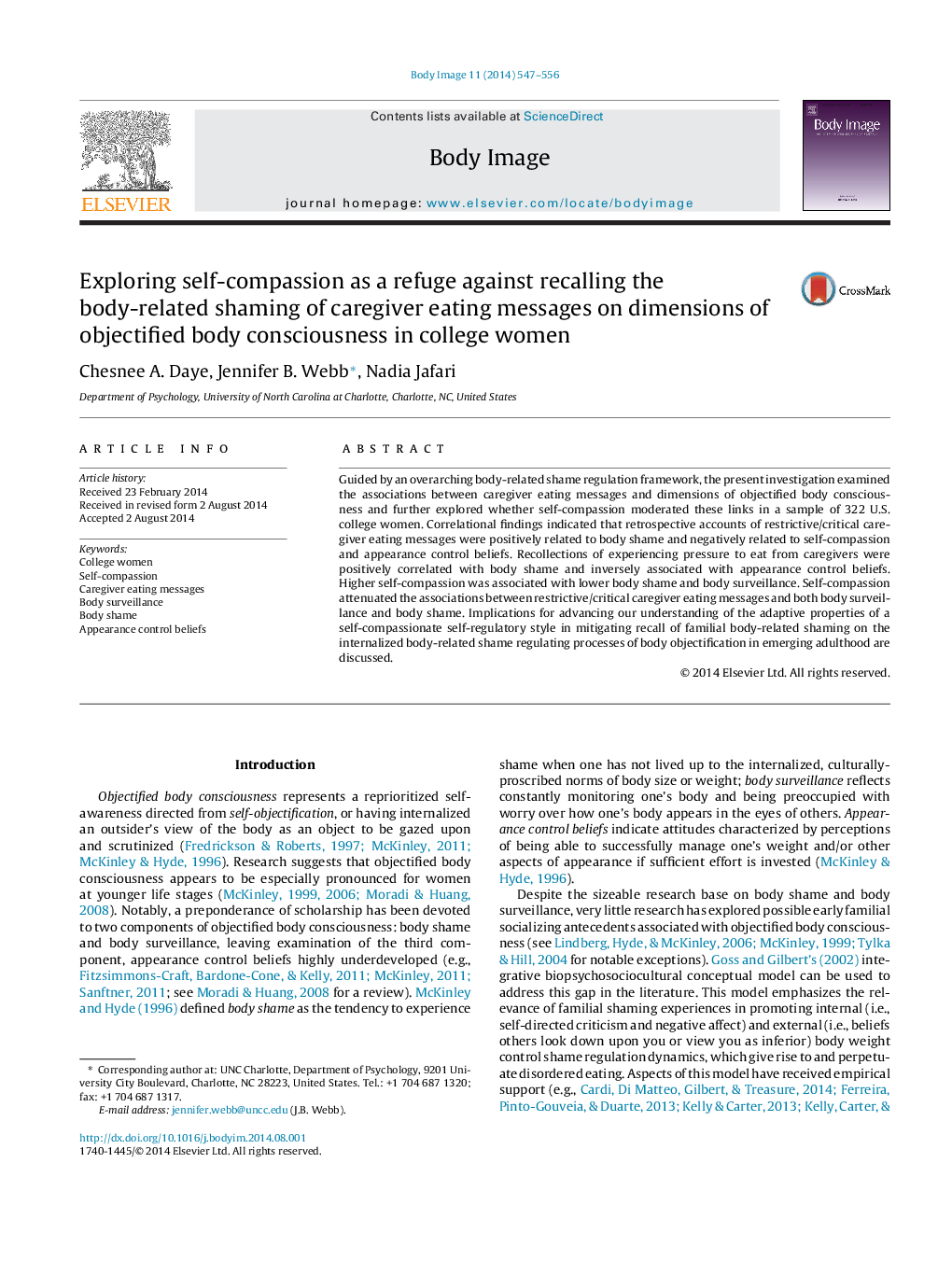| Article ID | Journal | Published Year | Pages | File Type |
|---|---|---|---|---|
| 902837 | Body Image | 2014 | 10 Pages |
•Caregiver eating messages were examined in relation to body objectification.•Self-compassion (SC) was tested as a moderator.•Restrictive/critical (RC) and pressure to eat messages had positive links to body shame.•Both types of eating messages were inversely linked to appearance control beliefs.•SC attenuated the links between RC messages and both body shame and surveillance.
Guided by an overarching body-related shame regulation framework, the present investigation examined the associations between caregiver eating messages and dimensions of objectified body consciousness and further explored whether self-compassion moderated these links in a sample of 322 U.S. college women. Correlational findings indicated that retrospective accounts of restrictive/critical caregiver eating messages were positively related to body shame and negatively related to self-compassion and appearance control beliefs. Recollections of experiencing pressure to eat from caregivers were positively correlated with body shame and inversely associated with appearance control beliefs. Higher self-compassion was associated with lower body shame and body surveillance. Self-compassion attenuated the associations between restrictive/critical caregiver eating messages and both body surveillance and body shame. Implications for advancing our understanding of the adaptive properties of a self-compassionate self-regulatory style in mitigating recall of familial body-related shaming on the internalized body-related shame regulating processes of body objectification in emerging adulthood are discussed.
